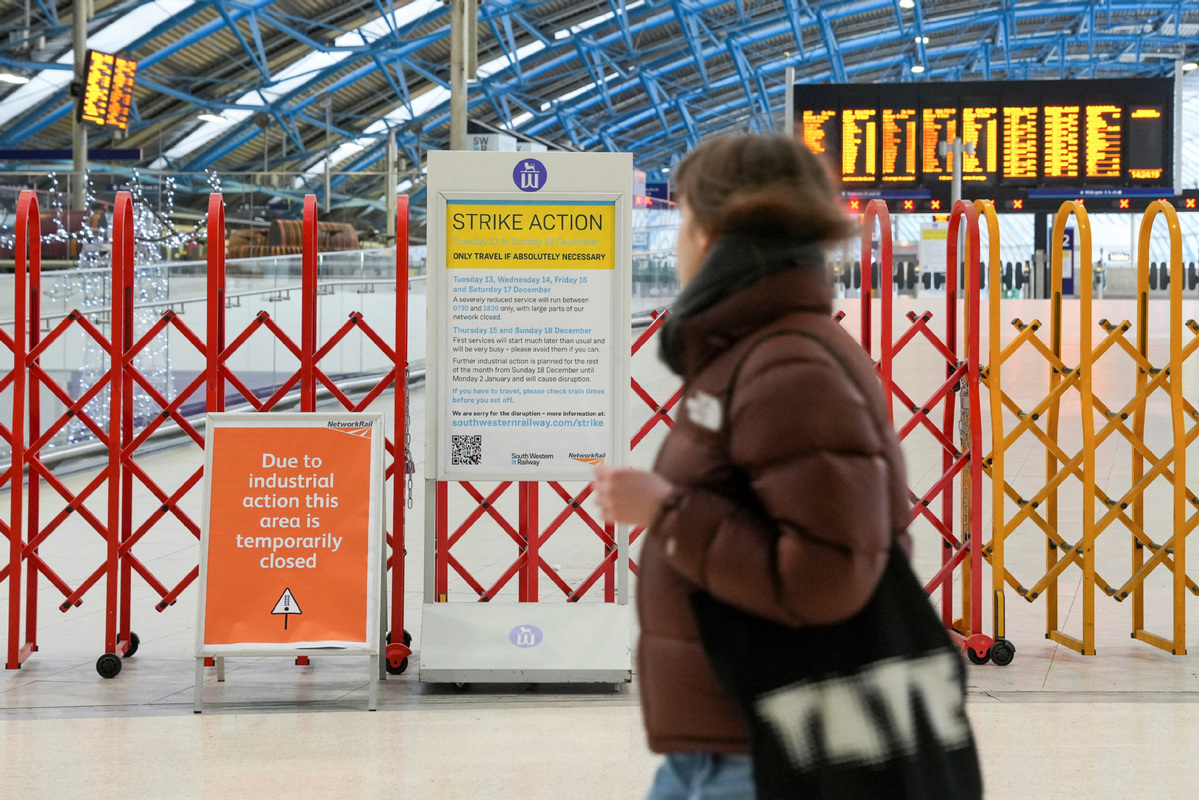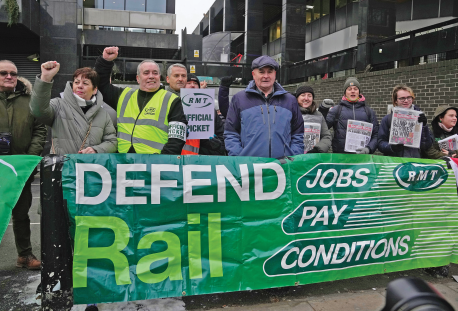UK work days lost to strikes hits 10-yr high
By JULIAN SHEA in London | China Daily | Updated: 2022-12-14 00:26

October saw the highest number of working days lost to industrial action in the United Kingdom in more than a decade, according to newly-released figures from the Office for National Statistics, or ONS.
The figure — 417,000 days — was revealed on the same day that the latest round of nationwide rail strikes brought train services across the UK to a halt, with industrial action also taking place imminently in numerous other sectors including nursing, airport baggage handlers, bus drivers, postal and highways workers, with the main bone of contention being that wages are failing to keep up with the cost of living crisis.
In the three months to October, the ONS said, regular pay had gone up by 6.1 percent, but factoring in inflation, which is at its highest in more than 40 years, at 11.1 percent, wages effectively fell by 2.7 percent.
Earlier this week, a report by the Trades Union Congress highlighted what it said was the biggest wage drop since 1977, with the organization's general secretary Frances O'Grady saying workers were suffering as a consequence of "years of wage stagnation" that had left them "brutally exposed" this year.

The biggest union on the railways, the National Union of Rail, Maritime and Transport Workers, or RMT, has been engaged in a series of strikes since the summer, with further periods of action already scheduled into the new year, in a long-running dispute about post-pandemic funding of the railway network.
The most recent offer put forward by rail infrastructure company Network Rail was a 5 percent pay rise for this year — backdated to January — and a further 4 percent in the new year, with no compulsory job losses until January 2025.
Out of an 83 percent turnout, 63.6 percent of RMT members voted to reject the offer, which union general secretary Mick Lynch called "substandard".
"The government is refusing to lift a finger to prevent these strikes and it is clear they want to make effective strike action illegal in Britain," he said.
"We will resist that and our members, along with the entire trade union movement, will continue their campaign for a square deal for workers, decent pay increases and good working conditions."
Speaking on BBC Breakfast, Network Rail chief executive Andrew Haines admitted the outlook for the dispute was not good.
"It's hard to see that today," he said. "I've learned … through a long career that sometimes the light is just around the corner. But where I stand today, I'd have to say that with the level of disruption the RMT are imposing, the way forward isn't obvious."
























